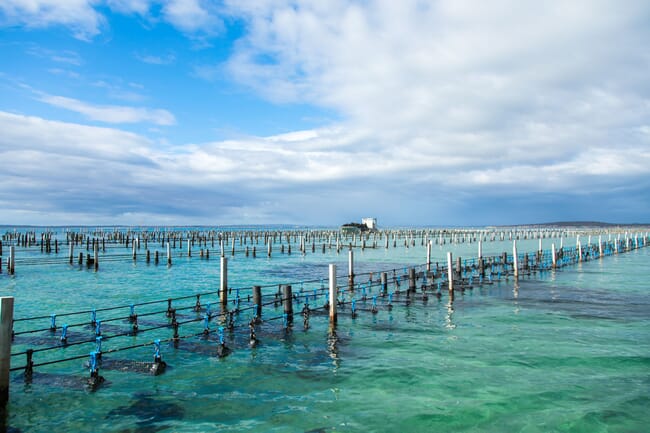So concludes a team of scientists from the University of Adelaide, The Nature Conservancy (TNC) and Macquarie University, in a study published in BioScience today.

© PIRSA
According to their research, while aquaculture can have negative impacts – largely through poorly designed, sited, regulated or operated facilities – there is a growing body of evidence to suggest some of the broader, positive ecosystem and social benefits associated with aquaculture operations in marine environments may be overlooked.
Lead author on the study, Dr Heidi Alleway from the University of Adelaide, explains: “Our reading found that aquaculture facilities can deliver a range of goods and services that provide benefits to people and nature, beyond merely the production of food, and may be able to be designed to boost these effects.”
Known collectively as ‘ecosystem services’, the authors argue that aquaculture can provide beneficial goods - such as food and medicines - and services, such as water treatment, shelter/habitat for wildlife and erosion prevention.
Dr Chris Gillies, marine manager at TNC Australia, said: “We found that these benefits can sometimes mitigate and even outweigh negative impacts, which is important to bear in mind as we face the global challenge of providing food sustainably to a growing population.”
Only a small portion of the Earth's surface is currently used for aquaculture. Its potential to produce food for a hungry world is immense. For example, it has recently been estimated the current total landings of all wild-capture fisheries could be produced using less than 0.015% of the global ocean area.
Ensuring aquaculture can deliver ecosystem services, without these benefits being compromised by negative impacts, requires aquaculture facilities to be more conscious of their design and their interactions with their surroundings, to maximise the positive effects.
The paper illustrates that recognition and more active accounting of the positive benefits that might be delivered by marine aquaculture needs to occur to provide a broader and more accurate valuation of the full range of effects. If this occurs, it could be a major driver of improved ecological and social benefits from aquaculture activities, alongside economic outcomes.

